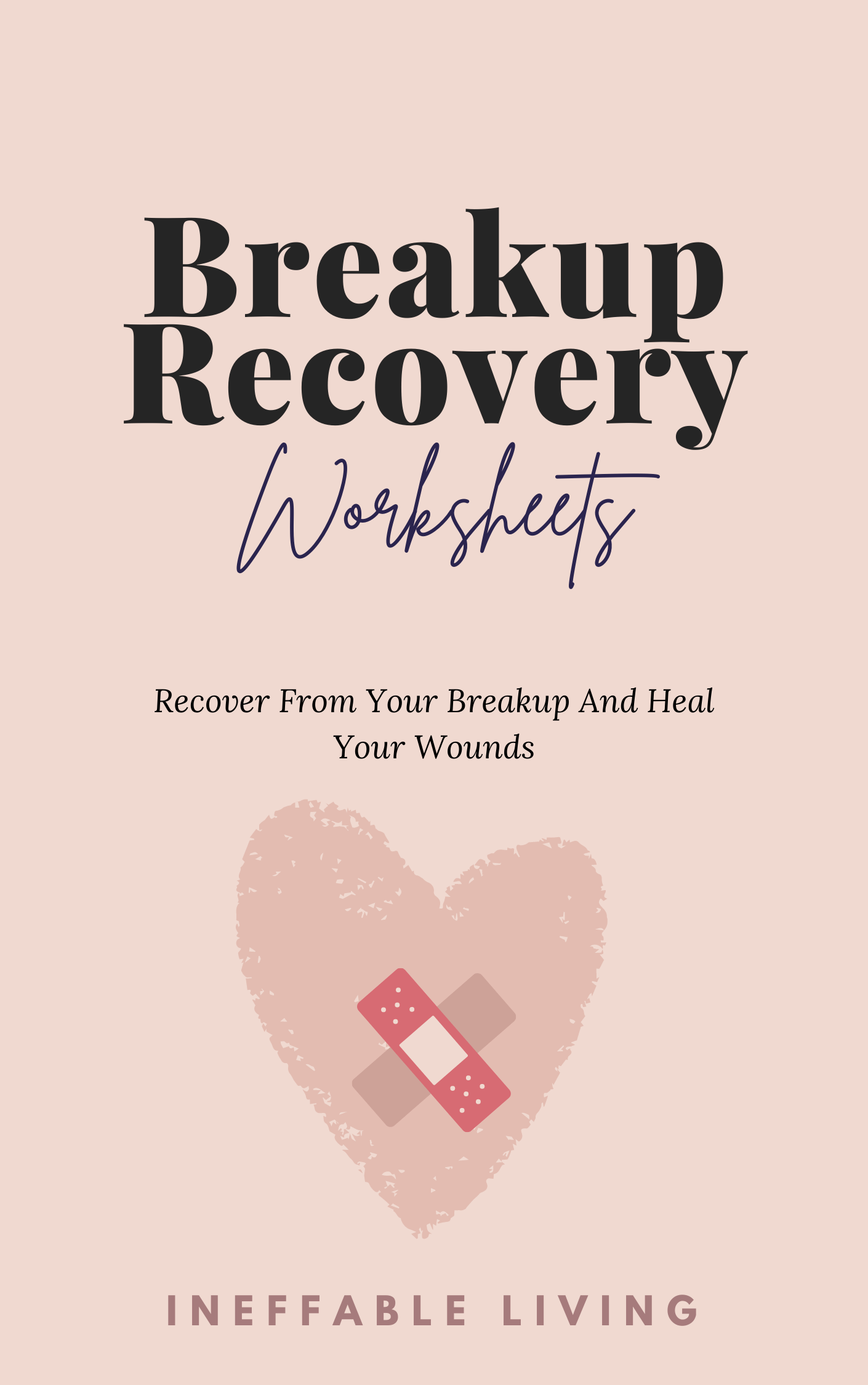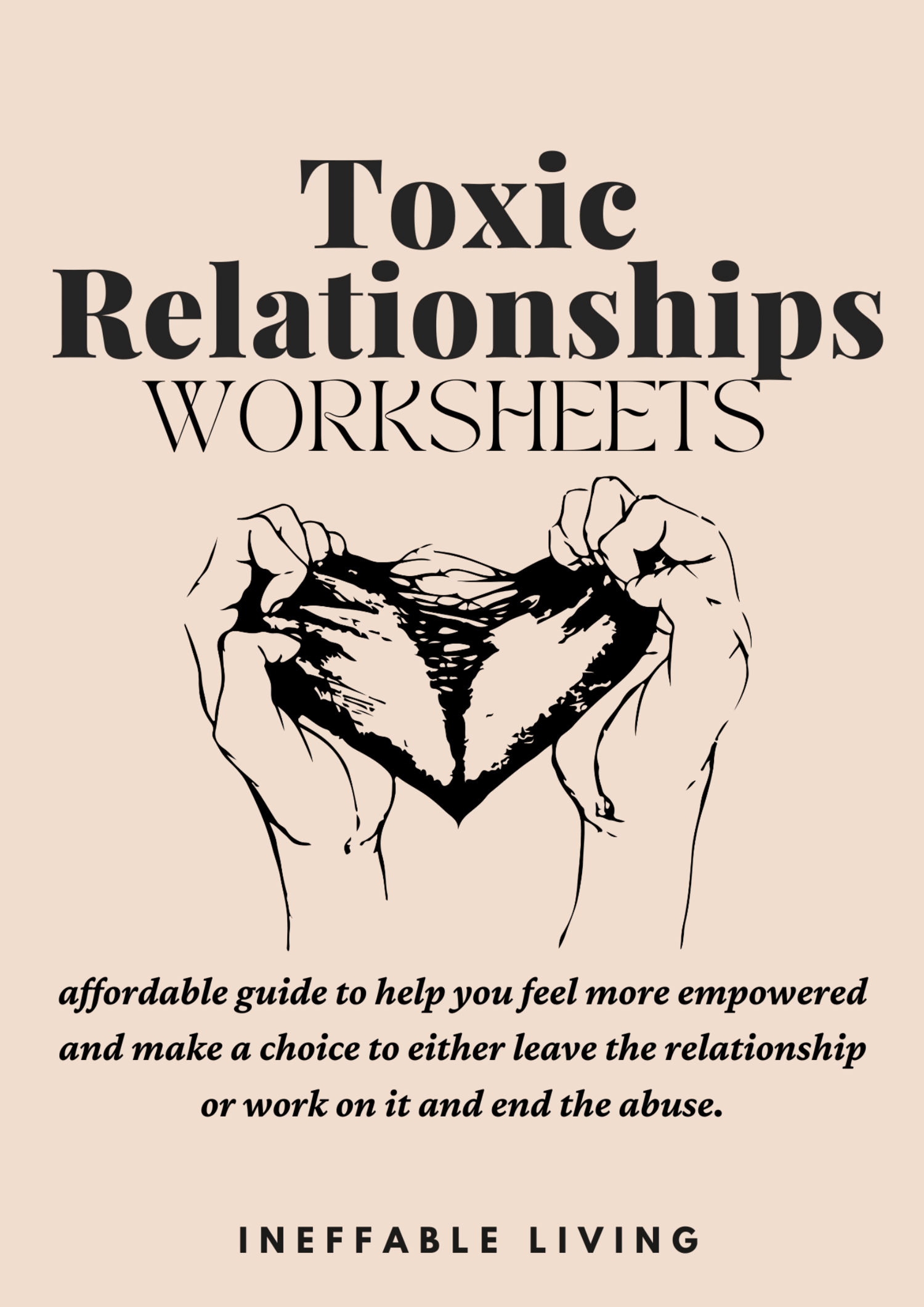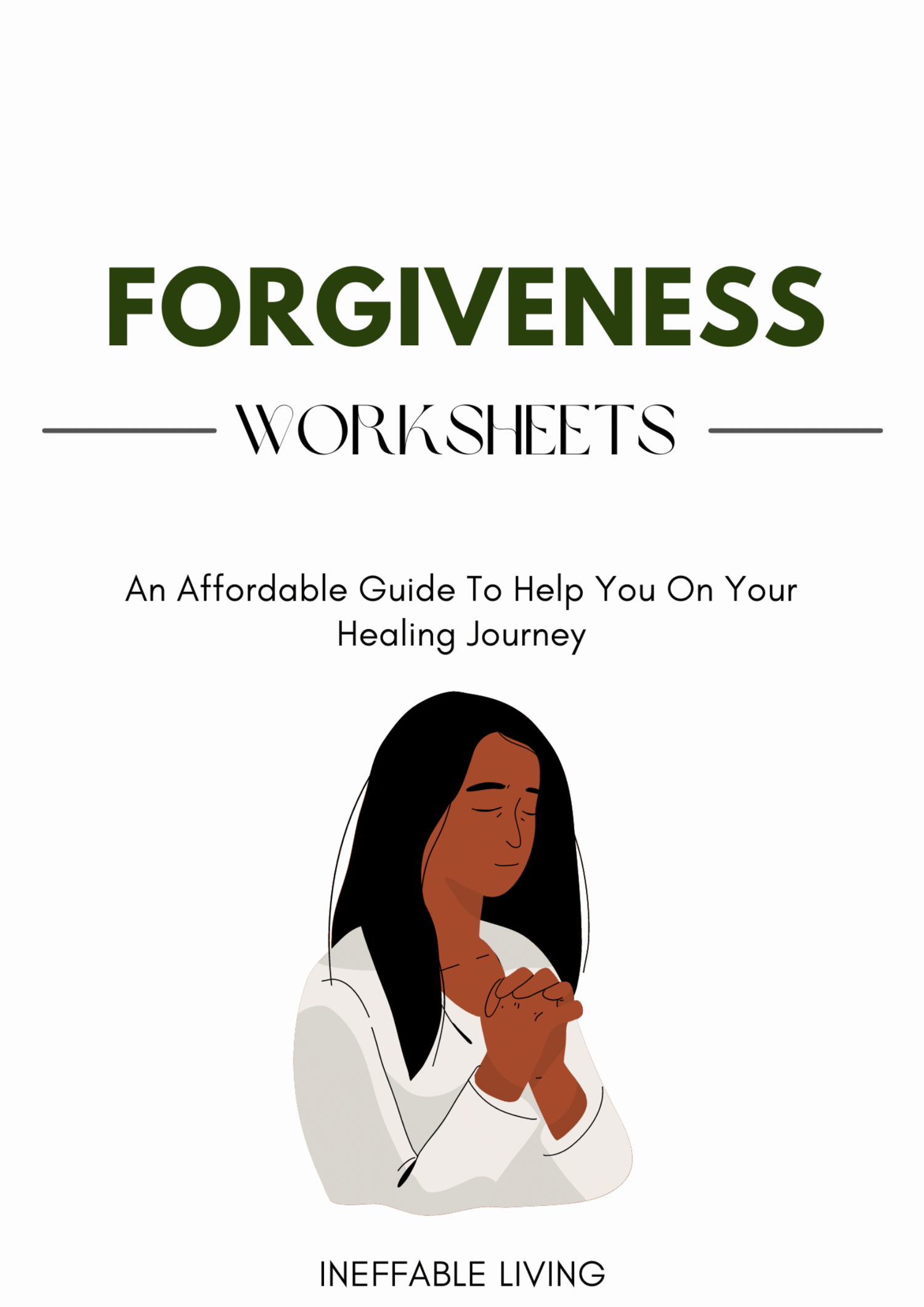Heartbreak doesn’t just hurt — it lingers. Whether it was a breakup, betrayal, or the slow fading of a relationship you gave everything to, the pain can feel impossible to escape. You replay conversations, blame yourself, and wonder if you’ll ever feel whole again.
But healing is possible. And you don’t have to figure it out alone. These breakup and heartbreak recovery worksheets offer gentle guidance to help you move from emotional chaos to clarity — one page at a time.
Why Heartbreak Hits So Hard
When a relationship ends, it’s not just the loss of a person — it’s the loss of:
- Your sense of safety
- Your daily routine
- Your future plans
- The version of yourself you were with them
That’s why heartbreak can feel like grief — because it is. And just like grief, it deserves compassion and space to heal.
1. Breakup Recovery Worksheets
Gently process your heartbreak, release obsessive thoughts, and rebuild your sense of self — one step at a time.
2. Toxic Relationships Worksheets
Recognize red flags, heal from emotional manipulation, and reclaim your voice after a harmful relationship.
3. Divorce Recovery Worksheets
Navigate the emotional weight of separation with tools for grief, self-renewal, and moving forward with strength.
4. Forgiveness Worksheets
Let go of resentment and self-blame with guided reflection that makes forgiveness feel possible — even freeing.
5. Attract Your Ideal Lover Worksheets
Clarify your relationship values, uncover unconscious patterns, and prepare your heart for a healthier, more aligned love.
How Worksheets Support Breakup Recovery
Unlike advice from friends or social media, worksheets help you go inward. They give you space to:
- Process the full range of emotions — from sadness to anger to relief
- Unpack patterns and what the relationship revealed about your needs
- Interrupt obsessive thoughts and late-night spirals
- Let go of self-blame and practice forgiveness (for them and for yourself)
- Rebuild your identity outside of the relationship
- Create a vision for what’s next — even if you’re not ready to act on it yet
These are real tools that meet you in the rawness of loss and help you take the next step.
Who These Worksheets Are For
These tools are for you if:
- You can’t stop thinking about your ex
- You’re grieving a toxic or one-sided relationship
- You feel stuck between missing them and knowing they weren’t right for you
- You want to stop the cycle of checking their profile or overanalyzing the past
- You’re ready to feel like you again
No matter how long it’s been, your pain is valid — and you don’t have to carry it alone.
You Deserve Peace After Pain
Breakups can shatter you — but they can also rebuild you into someone wiser, stronger, and more connected to your worth. These worksheets don’t rush you. They walk beside you, gently helping you let go of what hurt and hold on to what heals.

Read Testimonials –> HERE
FAQs
Can I use the worksheets with my therapy clients?
Absolutely! The worksheets are meant for both, personal and professional use.
The worksheets are copyrighted so you can’t resell them or upload them publicly online. But you can share them with your clients.
Can I make changes to the files before handing them down to my clients?
Absolutely! You can convert your PDF files to word documents and make changes using free tools like pdf2doc.com.
How do I know if these worksheets are right for me?
These worksheets are perfect for anyone who needs an affordable, yet effective strategies to help them increase their self-awareness and work on their own issues – alone or with their therapist.
These worksheets are not a one-size-fits-all approach and are in no way meant to imply that change is as one-dimensional as a worksheet.
So choose the techniques and suggestions that apply to you and tailor the exercises in ways that will be helpful to you.
Can I use these worksheets on my own or should I seek professional guidance?
These worksheets are designed to be helpful on their own. However, seeking professional guidance from a mental health professional can increase their effectiveness.
How do I use mental health worksheets effectively?
1. Set aside dedicated time: Find a quiet and comfortable space where you can focus on yourself without distractions. Treat this as valuable self-care time, just like you would for any other important appointment.
2. Choose the right worksheet: There are numerous worksheets available, each offering unique exercises and prompts. Consider your specific needs and goals. Are you looking to enhance self-awareness, manage stress, or improve your relationships? Select a worksheet that aligns with your current focus.
3. Read instructions carefully: Take a moment to fully understand the purpose and instructions of the worksheet. Clarify any questions you may have before proceeding.
4. Engage in self-reflection: Set pen to paper and let your thoughts flow. Don’t worry about perfection or judgment – this is your private space to express yourself authentically. Be honest with yourself and explore your emotions, thoughts, and experiences without restraint.
5. Reflect on your insights: After completing the worksheet, take some time to reflect on what you have learned about yourself. Consider any patterns or triggers that impact your mental well-being. Identify areas where you can implement positive changes or coping strategies.
6. Incorporate your insights into daily life: The true value of mental health worksheets lies in applying your newfound awareness and insights to your everyday life. Consider how you can integrate these insights into your relationships, self-care routines, and overall well-being.
When should I see a therapist?
These worksheets are designed to help you better understand yourself, your distress, and your difficulties.
You can use it in conjunction with therapy or as a stand-alone guide to manage your distress.
These worksheets can be considered a low-intensity intervention. They’re perfect for those who are struggling with mild to moderate issues.
In mental health, mild to moderate symptoms are those that are severe enough to be distressing to you, but moderate enough that you can still manage most of your daily activities.
If you feel very overwhelmed by any of the exercises in these worksheets, this might be a sign that your symptoms are too severe for you to do the work by yourself.
A therapist will help you at your own pace and provide support and encouragement throughout the process.
Do you have more questions? Check this page –> FAQs




